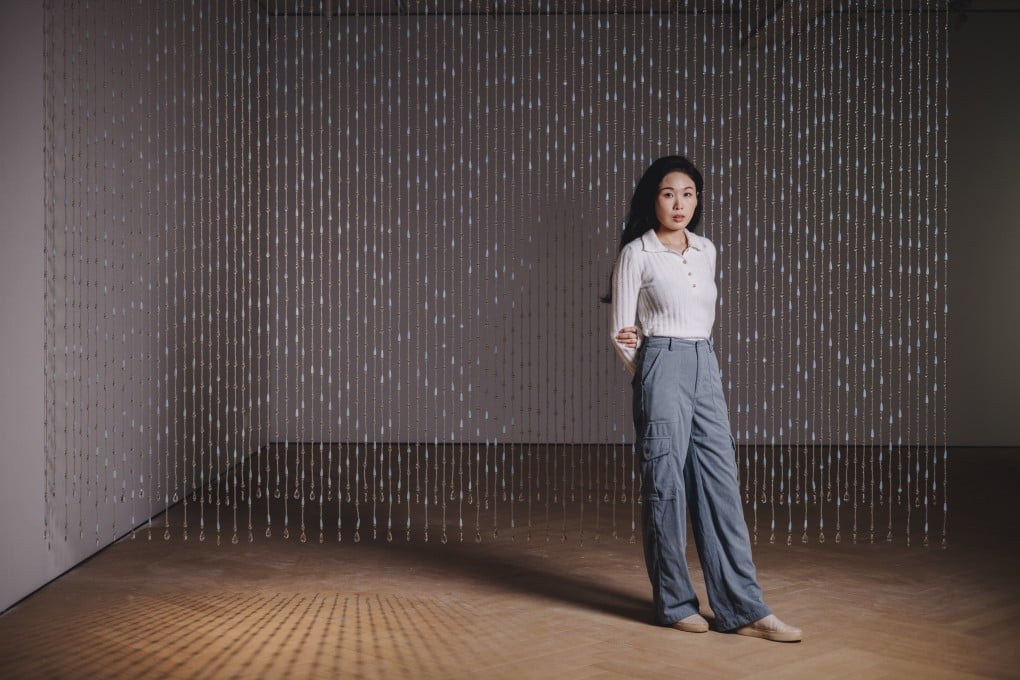Q&A | How Hong Kong artist Nicole Wong crystallises philosophical ideas into sculptural works
Wong talks crystals, the limitations of space and embracing nothingness; her solo exhibition ‘Once it Sets’ is on show at Rossi & Rossi

Nicole Wong is curious about our curiosity. “Crystals, jewels, reflective surfaces – why are we so attracted to shiny objects?” she asks. I meet the Hong Kong artist as she’s gearing up for her solo exhibition, “Once it Sets”, at the Rossi & Rossi gallery in Wong Chuk Hang, where she explores the process of crystallisation and notions of ambiguity and fixedness, to understand how things become established, or “set”.
Through her work, Wong poses philosophical questions associated with time, perception and transformation, and often uses materials as metaphor to address them.
Artificial crystals comprise the bulk of her sculptural works for the show, alluding to the idea that things are never quite what they seem. For The Definition of Rain (2024) – a sculpture resembling a beaded curtain – the artist uses opalite, a crystal made from glass resin that resembles the naturally occurring opal. The pattern of the raindrop-like beads follows the binary-code definition of rain, drawing a parallel with how meanings are constructed, perceived and established.

With a deep interest in spiritual ideas such as tarot-card reading and astrology, Wong also runs a crystal shop. While she doesn’t incorporate these New Age practices directly into her work, themes and motifs relating to the topics occasionally find their way in.
Two glass globes filled with water, resembling crystal balls, are part of Two Bodies, another installation on view at Rossi & Rossi. Light shines through the spheres as they rotate atop a camera tripod, projecting unexpected visuals and reflecting the transformative effects of light.
Wong’s interest in both New Age spirituality and art stem from a desire to find answers to open-ended questions. Though she had wanted to be a scientist – “something to do with physics or chemistry” – she quickly realised that “there is always a textbook answer” in science.
“I want the freedom to explore beyond the textbook,” she says. “Art allows for that.”
